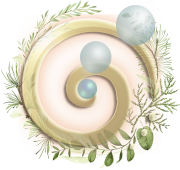
Alchemy
Alchemy is an ancient branch of science and philosophy. Alchemists aimed to purify, perfect, and transmute materials. Their quest furthermore included a universal cure for disease and a way to indefinitely prolong life.
"This is why alchemy exists," the boy said. "So that everyone will search for his treasure, find it, and then want to be better than he was in his former life. Lead will play its role until the world has no further need for lead; and then lead will have to turn itself into gold.
That's what alchemists do. They show that, when we strive to become better than we are, everything around us becomes better, too."
Paulo Coelho, The Alchemist
In alchemy, each classical planet was associated with one of the seven metals known to the classical world. Each pair therefore shares an alchemical glyph. Additionally, some alchemists, like Paracelsus, associated vital organs with certain planets, also according to the Hermetic Qabalah.
According to Paracelsus (1493–1541)